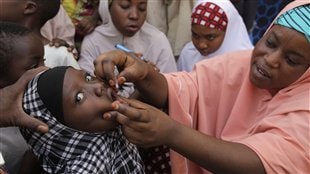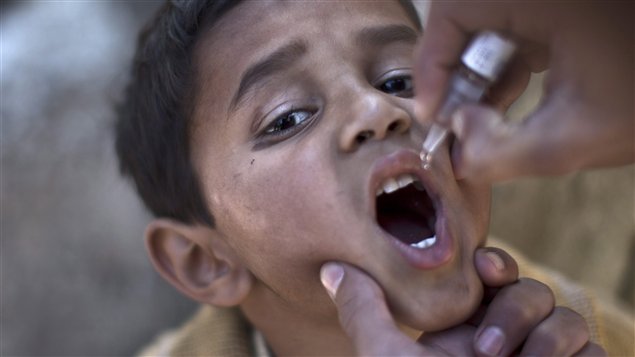The world has come close several times to eradicating the crippling disease that is polio, but a resurgence of the virus in several countries has prompted the World Health Organization(WHO) to declare an international public health emergency.
‘Tantalizingly close’ to eradication
“Polio is something that only lives in humans. The vaccine works extremely well. It should be something that we could actually get rid of,” says Michael Gardam, director of infection control and prevention at University Health Network in Toronto.
“We’ve seen this before when they get very, very close (to eradicating polio) and suddenly you end up having new cases popping up in other countries,” he says.

Conflict stalls vaccination
Worldwide immunization campaigns have stalled in some countries allowing the virus to gain a foothold. “The parts of the world that still have polio are very difficult countries to operate in,” says Gardam. “There’s frequently a lot of hostility towards vaccination campaigns. Sometimes vaccines get caught up in the whole regional conflicts.”
Islamic militants oppose vaccination
Dozens of polio workers have been killed over the last two years in Pakistan as Islamic militants accuse them of spying for the U.S. government. Militants have also spread the falsehood that the vaccine causes sterility.
Pakistan, Syria and Cameroon were identified as countries that have allowed the virus to spread beyond their borders. The world Health Organization recommended the governments of those three countries require citizens to have proof of vaccination before they be allowed to travel.
The World Health Organization has no power to oblige countries to require vaccination, but it urges them to do so and to support immunization campaigns by, for example, providing protection to those working on vaccination campaigns.
Warning parents who do not vaccinate
Canada has not had a case of polio in years because most Canadian children are vaccinated against it. But two to three per cent of children have not been immunized, some for religious reasons, other because their parents are suspicious of the very minimal risks of vaccines, or because they see no need since there is no polio in Canada. But health officials warn that people travel, and those children were exposed to polio they would be at risk of catching it.
They also warn that it is only because the vast majority of children have been vaccinated that the disease is kept at bay. If vaccination levels drop, polio and other diseases can make a comeback.







For reasons beyond our control, and for an undetermined period of time, our comment section is now closed. However, our social networks remain open to your contributions.